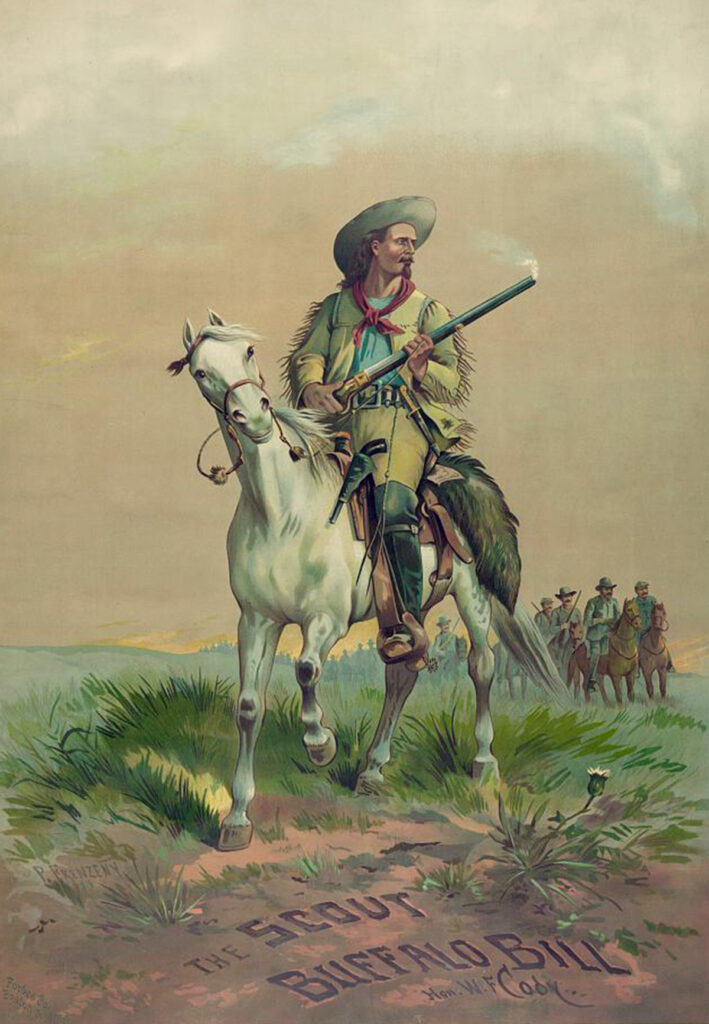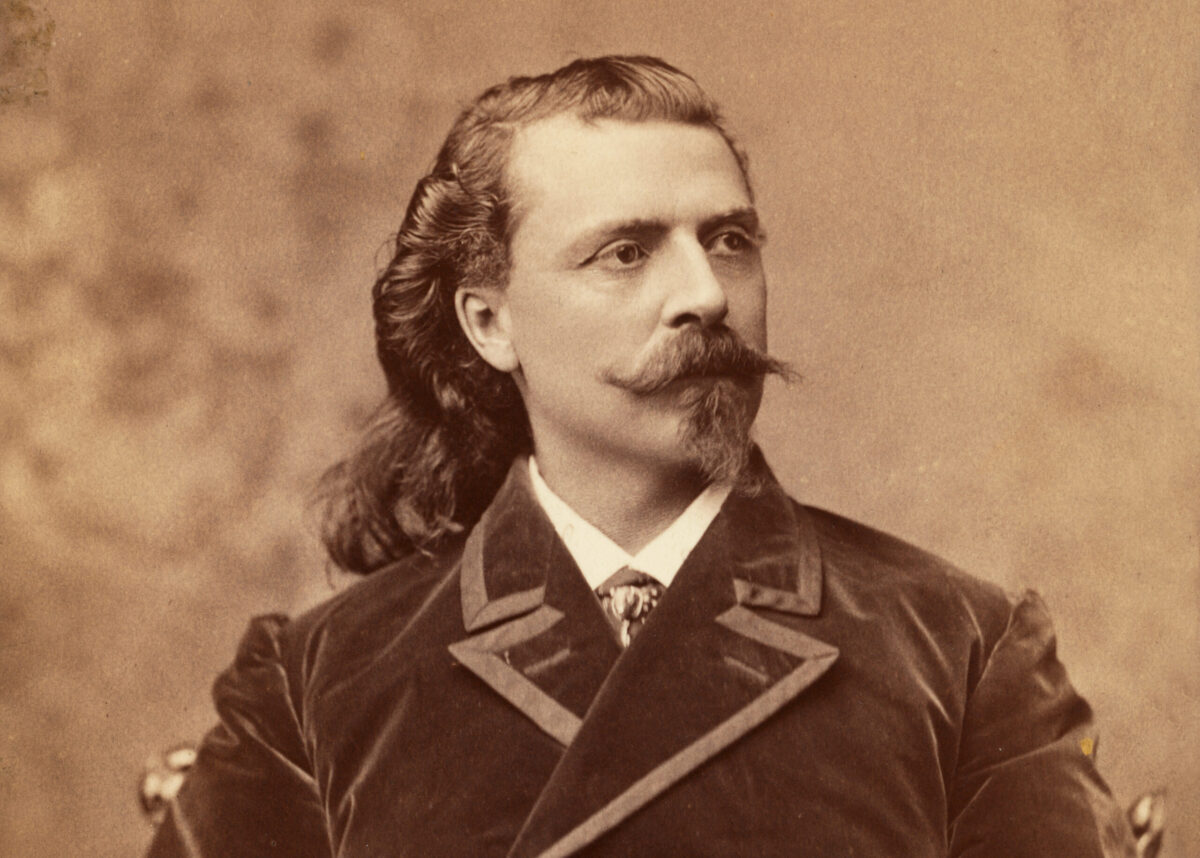1. Cody Family Moves to Kansas
Will was born in Iowa Territory in 1846. In 1854 father Isaac moved the family to Kansas Territory in search of a better life. There young Will watched a wagon train embarking on the Oregon Trail and declared that was what he wanted to do. Three years later, at age 11, he did just that with a freighting operation. It was the first of many such trips.
2. Will Meets the Kickapoos
Young Cody’s earliest encounters with American Indians were with Kickapoos who did business at his father’s trading post. Will also befriended Kickapoo classmates. Such positive encounters informed the way he approached Indians the rest of his life.
3. Family Opposition to Slavery
Isaac Cody opposed allowing slavery in Kansas Territory and was stabbed in 1854 while speaking against it. Pro-slavers continued to persecute the family until Isaac’s death three years later. Will regarded his father as a martyr and idolized his mother for having persevered. Following their examples, he later championed equal rights for women and Indians.
4. Riding With the Pony Express
Just what role Cody played in the Pony Express is open for debate, but it was important enough to him to emphasize in his 1879 autobiography, by which time the mail service was but a memory. It might have remained a footnote in American history had Cody not promoted it in every performance of Buffalo Bill’s Wild West over a 30-year span.
5. Becoming ‘Buffalo Bill’
In 1867, during a hiatus as a scout for the U.S. Army, Cody landed a contract to supply bison meat for work crews on the Kansas Pacific Railway. He proved such an adept hunter that the workers bestowed on him the nickname “Buffalo Bill.”

6. A Taste of the Good Life
After fulfilling his contract with the railroad, Buffalo Bill returned to scouting for the Army. In January 1872 he led a hunt for Lt. Gen. Phil Sheridan in honor of Russian Grand Duke Alexei Alexandrovich. Among the guests were wealthy New Yorkers who introduced Cody to gourmet dining, something he’d enjoy the rest of his life. Within weeks he traveled to Manhattan, where he dined at Delmonico’s, stayed in fine hotels, partied with millionaires and took in several plays.
7. Taking the Stage
One of the plays Cody went to see while in New York was Buffalo Bill, King of the Border Men, at the Bowery Theater. He attended with Ned Buntline, who wrote the dime novel series on which the play was based. At Buntline’s urging, Cody embarked on an acting career that December.
8. Birth of Buffalo Bill’s Wild West
After a decade onstage Cody reflected, “Immense success and comparative wealth, attained in the profession of showman, stimulated me to greater exertion and largely increased my ambition for public favor.” That ambition led to his most successful enterprise. Beginning in 1883, Buffalo Bill’s Wild West introduced the region’s people, animals and stories first to all Americans and then to the world. The show transformed Cody into history’s first international celebrity.
9. Buffalo Bill Conquers Europe
In 1887 Cody was invited to bring his Wild West to London and perform as part of Victoria’s Golden Jubilee, celebrating her half century as Britain’s queen. Afterward, Buffalo Bill toured the Continent with his troupe, introducing Europeans to the American West. In each nation tens of thousands of curious spectators flocked to the celebrated showman’s arena performances.
10. World’s Columbian Exposition
Cody’s success in Europe only boosted his status at home. Back Stateside he planned a grand homecoming at Chicago’s 1893 World’s Columbian Exposition, but its aloof organizers denied the showman a place on their grounds. For nearly a year the Wild West performed just outside the main gate, drawing far larger crowds—18,000 people to each of its two daily shows. Buffalo Bill left the “Windy City” a millionaire with a legacy extending beyond his own lifetime.





